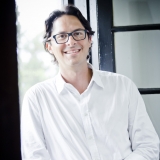The main objective of thus study is to contribute to the design of policies dealing with the problems of congestion and air pollution in the urban context of a typical developing country.
In this paper we study a group of policies aimed at discouraging the use of private transportation during peak hours, both directly and indirectly, by increasing the attractiveness of the only available substitute, the bus.This is done using a choice experiment constructed to find the answer to the following basic question: Given fixed house-to work structures and no working hour flexibility, by how much is the choice of travel mode for commuters to work sensitive to changes in travel time, changes in costs for each mode and other service attributes? This information is then used to identify the most suitable combination of policies dealing with air pollution and congestion in the typical developing country context of metropolitan Costa Rica. We also provide estimates of the value of travel time as a measure of the potential benefits gained from reduced congestion.

